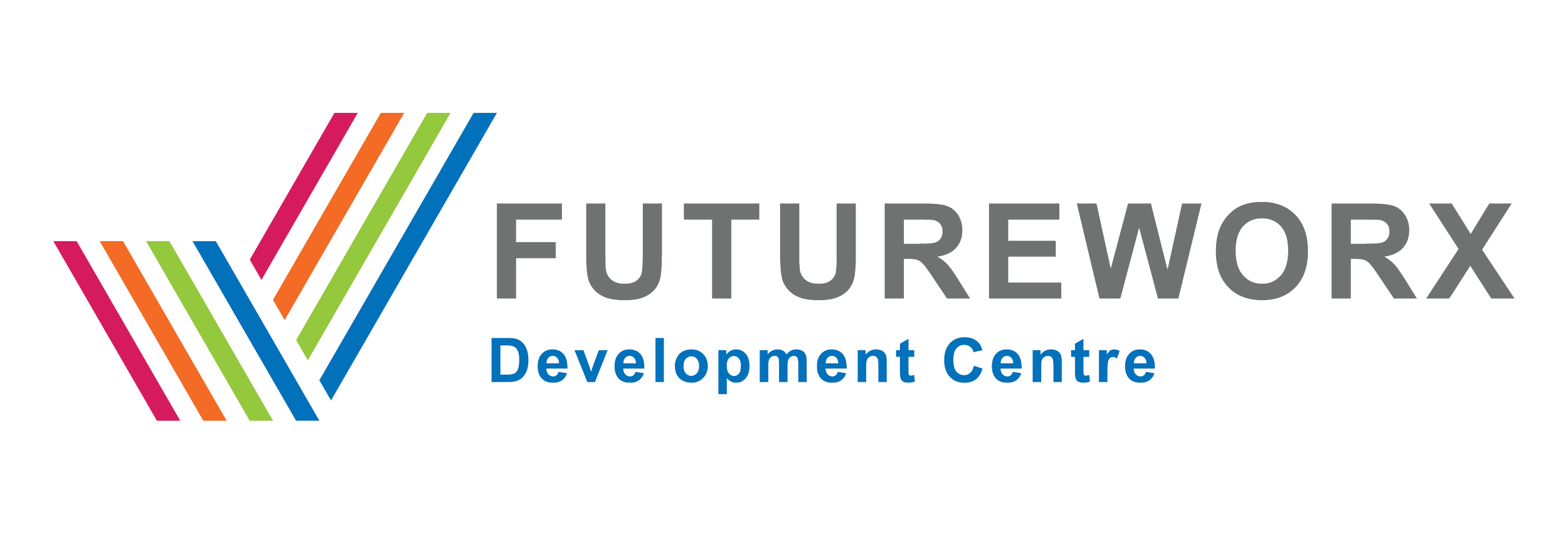
Your path to a career in healthcare
Futureworx Career College
As a leader in employment and skills development services, Futureworx Career College provides students with the support that enables them to engage in employment initiatives that support their goals. Registered under the Nova Scotia Private Career Colleges Act, the College administers the Futureworx Continuing Care Assistant Program and the Futureworx Development Centre, offering occupational training in the Health Care Sector. Our College has delivered CCA projects all over the province, from Bridgewater to Neil’s Habour - bringing our client-centric approach to more students than ever.
Continuing Care Assistants are in high demand in Nova Scotia! CCAs are key members of the healthcare system, helping clients with daily activities, supporting social or recreational interactions, and helping maintain client safety and well-being. As the demand for personalized care continues to rise, the need for qualified healthcare professionals is stronger than ever.
If you’re a caring, compassionate person with a strong desire to help others, Futureworx’s Continuing Care Assistant program could be a great fit for you! For more information, contact our Program Coordinator at 902-893-8582 or careercollegecontact@futureworx.ca
Futureworx Development Centre
The Futureworx Development Center is registered with Nova Scotia Private Career Colleges and provides Recognition of Prior Learning (RPL) assessment and educational services. We support those who have previously or are currently working as a care provider or related role in the health and human services sector to attain their Continuing Care Assistant (CCA) certification through an assessment and educational process, which prepares them for the Provincial CCA Certification Exam.
We provide our clients with support that enables them to engage in employment initiatives that support their goals. Our dedicated team supports individuals achieving credit for past care-related experience, on-the-job training, formal education, and their life experiences. Through the RPL process you prove that you have the required knowledge, skills and abilities required for CCA Certification. For more information on the RPL Program contact one of our Navigators today at (902) 895-8339 or CCAPLAR@futureworx.ca.
Continuing Care Assistant
Become a competent and compassionate care worker, enhancing the lives of the individuals and communities you serve.
-
CCAs are critically important in the health-care sector and in-demand! The Nova Scotia Government has recently increased the wage of the CCA by 23% to support this vital role.
Our province needs more people like you who want to become a Continuing Care Assistant [CCA] to enhance the quality of life for individuals of all ages with a short or long-term illness through the provision of personal care and support services.
The CCA program is administered through our Futureworx Career College and is designed to provide graduates with the necessary knowledge, skills and attitudes to deliver appropriate, timely and respectful person-focused care to individuals. Our programs offer a unique, blended approach to training that combines technical, employability and essential skills. The CCA program is delivered in accordance with current NS CCA Curriculum Standards and involves theory and practice in classroom, laboratory and placement settings.
-
Program locations vary based on need, employer partnership interest and funding availability. Check back for upcoming program deliveries!
-
Applicants to the CCA program must meet the following minimum provincially regulated admission requirements:
High School Graduation Diploma or equivalent, or Adult Learner Status
Clear, Canada-wide, Criminal/Vulnerable Record Check
Capable of performing all job requirements
Access to reliable transportation to reach the placement site
Proficiency in the official language in which the program is delivered
Basic computer skills
-
All applicants are required to:
Complete a Basic Adult Literacy Assessment
Interview for program entry and submission of relevant support documentation.
Participate in employer selection review process (if required)
For more information or to apply, please contact: 902-893-8582
Please note that students who graduate from programs at any private career college, are currently not eligible to receive a Post Graduate Work Permit, as issued by Immigration, Refugees and Citizenship Canada. Based on federal and program funding requirements ad restrictions, international students are not eligible to apply to Futureworx CCA programs.
-
Our CCA programs are tuition free — funded through the NS Department of Labour, Skills, and Immigration. Learners may be responsible for the cost of the program textbook and the Nova Scotia CCA Administration Fee, payable at program start.
Program Fees ~ Learners may be responsible for the following program fees:
Registration Fee CCA Administration (includes Provincial Exam fee) — $400
Program Textbook — $150
Shoes — All CCA participants are required to have one pair of duty shoes
-
The NS Private Career Colleges Act and Regulations mandate minimum attendance requirements for all scheduled classes, lab practice and placements. Current regulations require a minimum attendance rate of 90%. Please note that some certificate courses, program modules and or placements require 100% mandatory attendance.
The CCA Program entails clinical placements in Long-term Care, Home Care, and approved Health Care Settings. Students are required to provide their own reliable transportation to clinical placements.
Shift work is an integral part of this occupation and learners are expected to follow the rotation of their placement mentors. Therefore, placements can involve day, evening, and night shift assignments for up to 12 hours per shift. While classroom instruction is held between Monday and Friday of each week, placements may occur any day of the week.
Students must successfully complete all program components to graduate and be eligible to write the provincial certification exam.
The pass mark for each program module/course or placement is 75%.
The CCA Program has additional requirements related to immunizations/vaccinations. Learners are responsible for providing documentation that they have completed these requirements at the beginning of the program.
Healthcare workers and other staff (including learners) who work in healthcare settings are at risk of exposure to communicable diseases due to their direct care contact with clients, residents and/or patients or material from individuals with infections, both diagnosed and undiagnosed.
Up-to-date vaccination status and Hepatitis B (Hep A/B recommended) vaccination is a condition for clinical placement and employment in most healthcare settings.
TB Testing — Health Authority policies require that all learners entering a healthcare program and completing placements in any associated facilities undergo a Two-Step Mantoux Test. The test cannot be older than six (6) months before starting the program and must be completed prior to first placement and/or lab assignments on care units.
Learners are responsible for any costs related to the obtaining of vaccination records and/or required immunizations. Please note: The submission of vaccination status records are conditions for placement by many employers/work placement hosts. Non-provision of records or refusal to obtain immunization may prevent the learner from going to/participating in mandatory placements.
-
Mandatory Certificate Courses
All learners must complete/obtain the following certificate courses in their entirety:
Dementia Care Course
Workplace Hazardous Material Information System (WHMIS)
Introduction to Occupational Health & Safety
Standard First Aid/CPR Level C
Food Hygiene Course or Basic Food Safety Training
Palliative Care Front-Line Education
Mental Health First Aid
Placements
Placements provide an opportunity for the learner to demonstrate that they are safe to practice their roles with a variety of individuals in nursing homes, home care, acute care, or other approved care settings. Placements are arranged by the education provider.
Skills Development Placement (minimum 110 hours)
Conducted in a Department of Health and Wellness licensed nursing home/home for aged. This placement is meant to introduce the student to a real work environment to develop their skills by providing hands on experience under the direct supervision of an RN or LPN.
Mentorships
Consisting of three (3) separately scheduled placements as follows:
Home Support: 80 hours. The goal of this placement includes skills development and gives the student an opportunity to work in partnership with a mentor in the development of skills unique to home support. The Home Support Mentorship Placement must be completed with a home support agency, providing services to Department of Health and Wellness clients.
Nursing Homes/Homes for the Aged: 80 hours. This placement allows the student to apply theory and skills in the workplace while working alongside, under the supervision of a mentor, in a Nursing Home/Home for the Aged.
Open Mentorship: 60 hours. This placement is the culmination of the learning that occurs in the classroom, lab and placements. It allows the student to apply theory and skills in a workplace as they work in partnership with a mentor(s). The Open Mentorship Placement is the final placement and must be completed after the student successfully concluded all theory, lab and previous placements. Placement settings may include one or more of the following provincial settings: Acute Care facility; Home Support agency; Nursing Home/Home for the Aged; and/or an alternate, approved, care setting.
Course/Module/Placement Exemptions
If you have taken courses at other post-secondary institutions and have completed them successfully, minimum final grade of 75% or higher, you may be eligible for course/module/placement exemptions.
To request exemption, learners must meet with the program instructor(s), submit a formal request, in writing and supply any required documentation for consideration.
Specialized Supports
Given the nature of this program and provincial program guidelines, accommodations may be limited. However, if you require accommodation due to a disability affecting vision, hearing, learning, mental or physical health, individuals must self- disclose during the admission process and provide relevant documentation.
Criteria for Successful Program Completion
Satisfactory performance both academically (classroom exams, lab practice, skills testing) and clinically (in your practice with clients) is required for completion of the program. Pass Mark for all modules/courses is 75%.
Program Courses & Modules
The following information provides an overview of the general content of the program, by course/module. Throughout the program learners are expected to: model respectful, appropriate professional behaviour and effective interpersonal interactions with others in accordance with the standards of practice.
Introduction to CCA Program and Health Care Sector
This module introduces the learner to the Continuing Care Assistant (CCA) program and the health care sector by providing an overview of the Program, and an understanding of the Program’s role within the Nova Scotia health care sector. It also introduces the learner to the framework governing the delivery of care and the various types of health care services and service providers in Nova Scotia.
CCA Personal and Professional Development
This module also introduces learner to the role of the CCA and the CCA’s general responsibilities as an integral provider of care and member of the health care team. Learning outcomes include the social philosophy of care; CCA Scope of Practice; professional responsibilities and the professional qualities and behaviours expected of a CCA.
Communication in Care Settings
This module will introduce the learner to effective interpersonal communication practices for CCAs. The learner will become familiar with different types of professional relationships and the appropriate forms of interpersonal communication that occur in care settings. The learner will assess his/her strengths and areas for improvement in interpersonal communications generally. The learner also will understand and practice communication strategies and approaches that will strengthen his/her ability to deal with the varied situations s/he might encounter as a CCA.
Documentation and Technology in Care Settings
This module will provide an introduction to the various forms of written communication required of CCAs in care settings and how CCAs can approach care-related written communication appropriately and effectively. The learner will recognize the importance of documentation in the coordination and monitoring of care and will overview various forms of documentation. The learner also will develop his or her written communication and documentation skills. Additionally, the learner will be introduced to the appropriate uses of technology by CCAs both inside and outside care settings.
Environmental Safety
In this module, the learner will gain an understanding of his/her role as a CCA in providing a safe and secure environment. S/he will become familiar with strategies, rules, regulations and protocols that will help him/her to minimize workplace risk. There is an emphasis on infection control.
Body Mechanics; Positioning and Transfers
This module introduces the principles of body movement and safety, to be followed during the performance of all direct and indirect assistance activities. Learner will learn how to position and transfer individuals by using person specific assessments and safe application of positioning and transfer strategies.
Care Setting Management
This module is designed to enable the learner to develop the skills required for the basic safety and cleanliness of the person’s care setting, according to the scope of employment policies. It prepares the learner to organize and complete daily care setting management tasks, set priorities, and develop time management skills.
Growth and Development
In this module learners will acquire the knowledge related to the principles of growth and development and how to apply them to meet the person’s needs. Topics include physical, emotional and social development across the life span.
Body Structure; Function and Health Conditions
This module will enable the learner to acquire a basic knowledge of the normal structure and function of the body. It introduces common health issues and the implications for care.
Personal Care
In this course learners will attain the skills and knowledge related to the provision of personal care. Using a person-centered philosophy of care approach. Learners will acquire the competencies required to implement respectful, safe, and effective personal care, to individuals across the life cycle.
Nutrition and Meal Preparation
In this module learners will be introduced to nutrition and the role of the CCA in meeting the dietary needs of individuals of all ages. Learners will develop the skills and knowledge necessary to plan, serve and prepare basic meals.
Mental Health and Social Issues
This module is designed to prepare the learner to recognize and support individuals who are experiencing mental health issues as well as various types of abuse and neglect. It explores strategies to maintain mental health and social well–being.
Medications
This module allows the learner to cultivate an awareness of medications and the role of the CCA in supporting the needs of the person. It introduces commonly used medications as well as some basic principles of pharmacology. Learner will acquire the skills to competently apply medicated topical creams, ointments and drops.
-
Graduates work in a variety of private or clinical settings, which may include:
Client residences
Long-term care facilities
Home support agencies
Acute care facilities

“Just completed the CCA program and wouldn't have succeed without the staff and classmates at Futureworx! What a great experience.”
— CCA student


